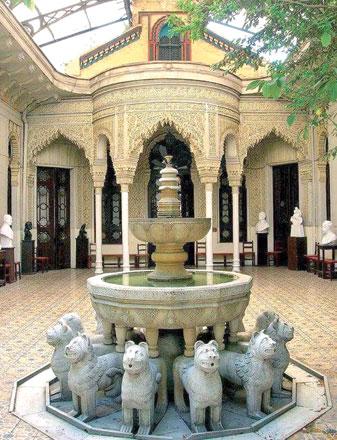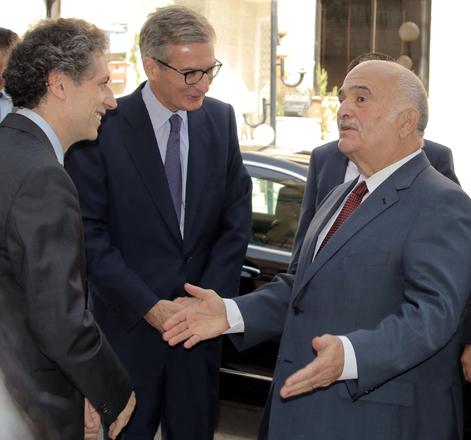You are here
Exhibition explores Arab-Latin America architecture relation
By Ana V. Ibáñez Prieto - May 15,2018 - Last updated at May 15,2018

Alhambra Palace, Granada, Spain (Photo courtesy of Spanish Embassy)
AMMAN — Jordanian audiences are getting a taste of the Arab culture present in Latin America through “Alhambras: Neo-Arabic Architecture in Latin America”, the new exhibition inaugurated by the Spanish embassy on Monday at the Jordan Museum.
Running through May 31, the exhibition is the visual result of several years of research which culminated with a project financed by the Council of the Alhambra and the Generalife, according to an embassy statement.
“This exhibition offers us an initial approach to the wealth of the Latin American heritage inspired by the Alhambra Palace in Granada and other significant Andalusian heritage buildings,” the statement said.
Held under the patronage of Prince Hassan Bin Talal, the exhibition comes in the framework of the Arab-Iberian-American Divan for Thought. Inaugurated in cooperation with the Royal Institute for Inter-Faith Studies, the Cervantes Institute and the Arab Thought Forum, the exhibition followed a lecture delivered at the Jordan Museum by Rafael López Guzmán, professor of art history at the University of Granada in Spain.
“The spread of Arab culture in Latin America begins with the Spanish colonisation of the Americas, when master builders arrived to the continent along with the conquerors and the heritage of Al Andalus impregnating the Spanish cultural baggage that they carried with them,” the professor told The Jordan Times in a recent interview, explaining that “from Mexico to Argentina, it is easy to find Muslim geometry and constructive systems of brick and mortar, in addition to the immaterial patrimony represented in their gastronomy”.
“What we can see is a transposition of the Arab and Andalusian cultures in a new territory — an adaptation that allows for the techniques to be transformed and for new elements to appear,” the professor continued, highlighting the “perfect symbiosis between the mudejar culture and the heritage of America itself, and the enrichment that America added to the mixture of Christian and Muslim art in Al Andalus”.
On the architectural and artistic landmarks of Jordan, López expressed that “the Treasury at Petra is like a lesson on the history of architecture frozen in time, which teaches us about the common culture that we all share”, stressing that “while Europe puts the focus on Greece and Rome, the sight of Petra reminds one of all the heritage from the Middle East”.
“We take more from our ancestors than we believe, and that is why, when trying to go forward, we shall examine our history and realise that we are not isolated beings,” the professor expressed, concluding “we live in a society, and culture and art cannot be advanced without reflecting on our past and the cultures that have influenced us.”
Related Articles
AMMAN — Enhancing translation of original writings from Arabic into Spanish and vice versa is central for boosting cultural interaction and
AMMAN — More than ever, the world needs to introduce spiritual elegance and beauty to all aspects of human culture, HRH Prince Hassan said o
AMMAN — The Spanish embassy and Instituto Cervantes in Amman are hosting a photo exhibition of works by the renowned Spanish photographer, J















